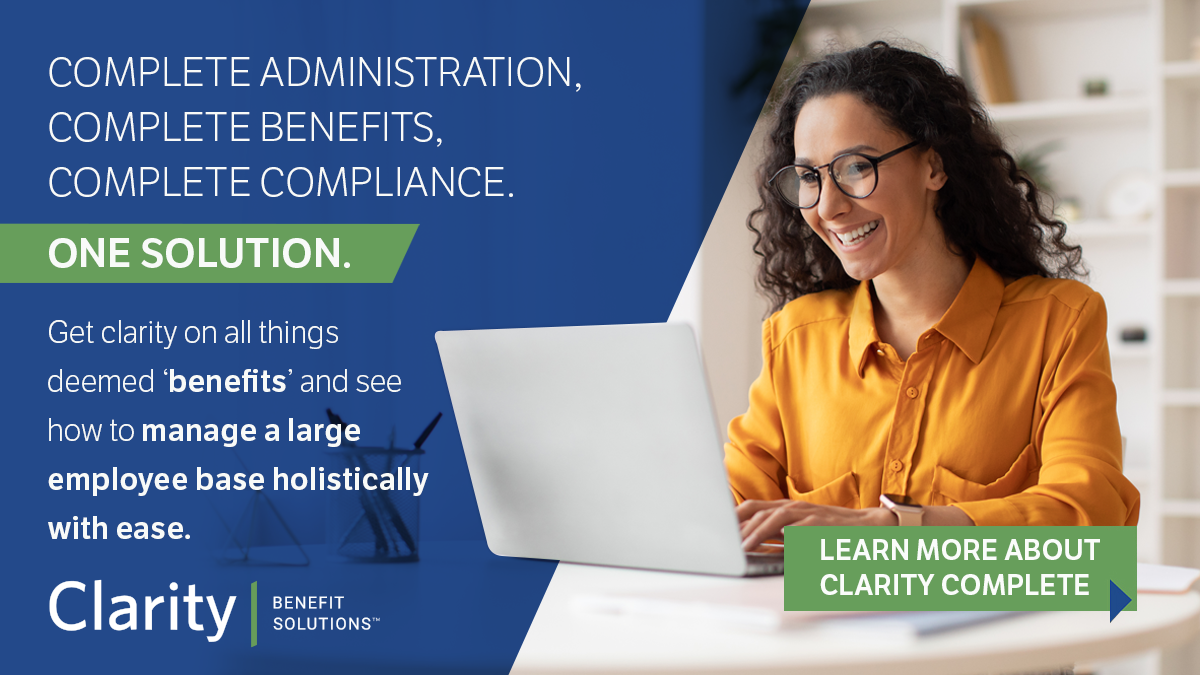
As we’ve said before, millennials are transforming employee benefits. With this generation maintaining a 35% share of the overall workforce, their needs should be considered as a driving factor in selecting benefit offerings.
When examining what this generation is looking for, one thing stands out – financial wellness. A study by Payoff shows that one in three millennials suffers from a condition known as Acute Financial Stress (AFS) which is a major contributor to the high rate of anxiety among this generation. Millennials have larger student debt amounts and are less likely to own a home than previous generations at the same age, due to financial conditions.
Employers can help address these concerns and issues through offering financial wellness benefits. George Washington University’s Global Financial Literacy Excellence Center found that while 55% of millennials grasp basic financial concepts, only about a quarter are truly financially literate. This is taking a toll on the workplace, with stress leading to mental and physical health problems that increase absenteeism and hinder productivity.
A Metlife study shows that about 85% of employees would like help with financial literacy from an employer-sponsored program. Here are some benefits employers can offer to address financial wellness and decrease financial stress among millennial employees:
1. Student Loan Repayment
The biggest driver of financial stress for millennials is student loan debt. Each millennial carries about $30,000 of the $1.5 trillion national total of student loan debt, which is hindering their financial progress. Buying a house, starting a family, and saving for retirement are all put on the back burner while this debt is being addressed.
Employers can address this in two ways. Employer-sponsored programs can offer an employer match up to a certain amount, as long as the individual continues to meet or exceed the minimum monthly payment. If that is not feasible for an organization, they can offer programs that set aside pre-tax dollars from an employee’s paycheck to be directly deposited towards the loan.
2. Tax preparation & Assistance
An area where millennials tend to feel financially underprepared is when it comes to understanding their taxes and how to get the most out of their tax returns. Offering resources like an informational seminar or making a consultant available to employees can help them better prepare for tax season. Consider using a combination of group and individual resources, as some people are not comfortable discussing finances in front of groups.
3. Long-term Savings & Investing Options
While millennials often feel that they don’t have the means to start saving for retirement, it’s important that they start now rather than waiting until later in their career. Even setting aside a small amount per paycheck will pay off by the time they are ready to retire. Encourage participation in 401(k)s, Health Savings Accounts, or other long-term savings plans by making enrollment simple and automated. Communicate, internally or with the help of a financial advisor, the importance of setting aside even a small amount towards long-term savings.
Unfortunately, having these benefits alone is not enough. They need to also be enticing to millennials specifically, with their presence being made known in a way that speaks to this generation. Some best practices to consider when offering financial wellness benefits to millennials:
· Making these programs available through the computer and mobile devices.
· Making financial health part of corporate culture and encouraging employees to set social examples for others.
· Discussing how financial wellness ties into mental health and overall well-being.
· Incentivizing participation through gamification and social sharing.
With these tools, employers can take a step in alleviating the financial stress plaguing their millennial employees.
Sources:
https://www.payoff.com/life/science/millennials-financial-stress/
https://www.zenefits.com/workest/financial-wellness-programs-rising/
